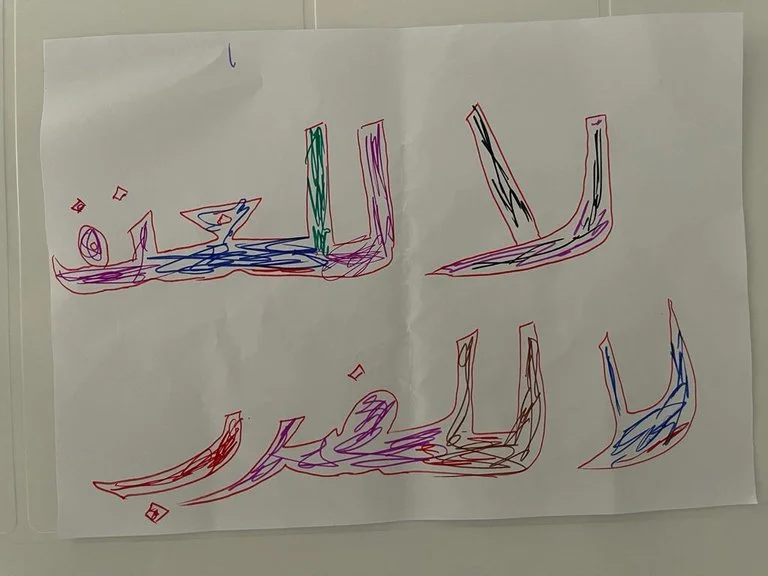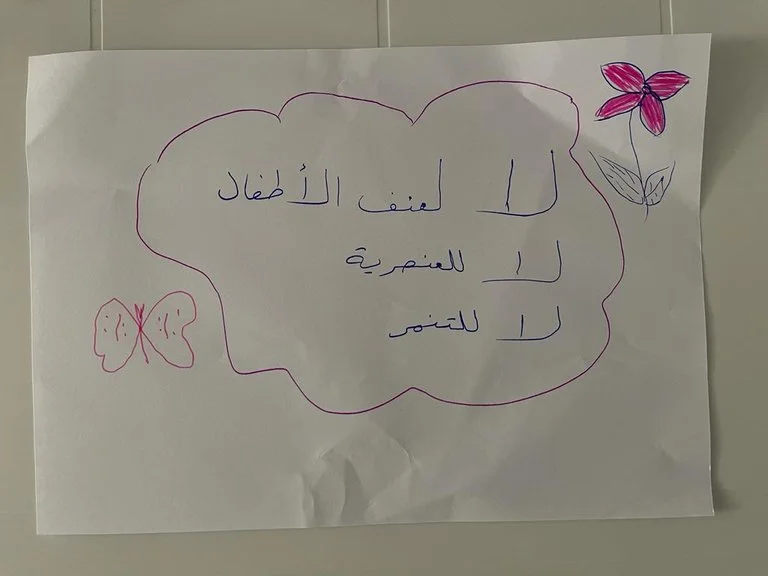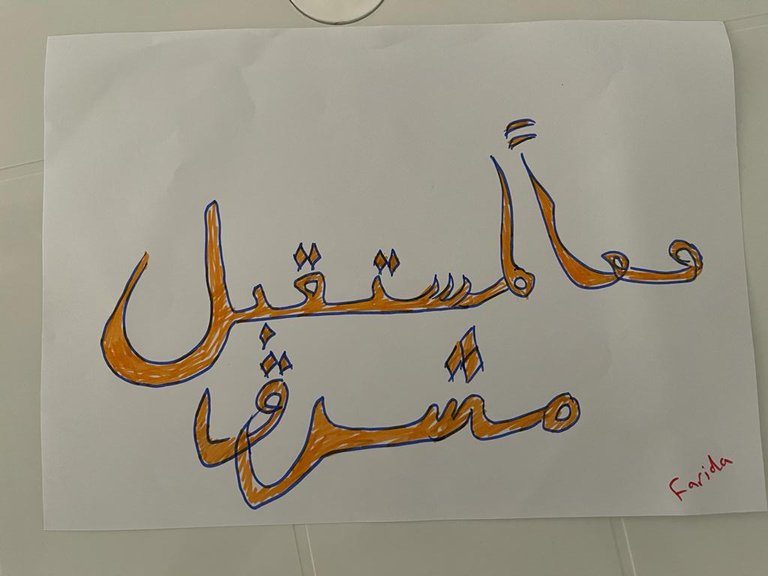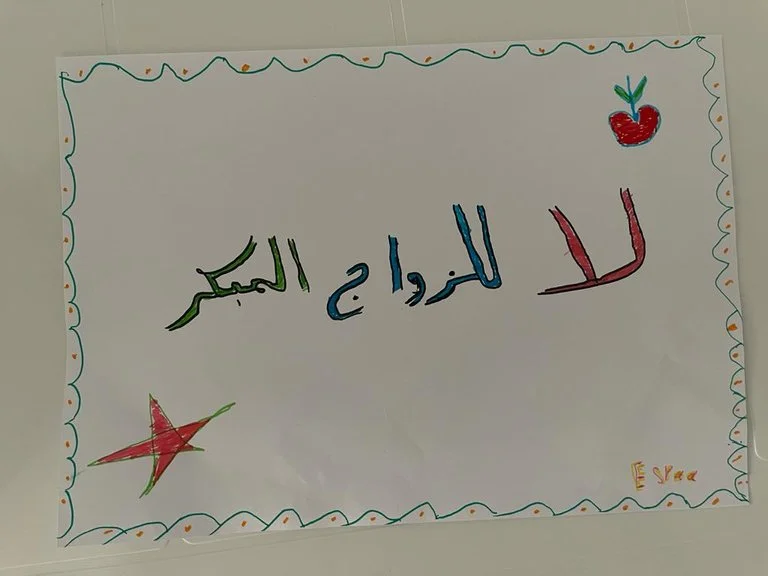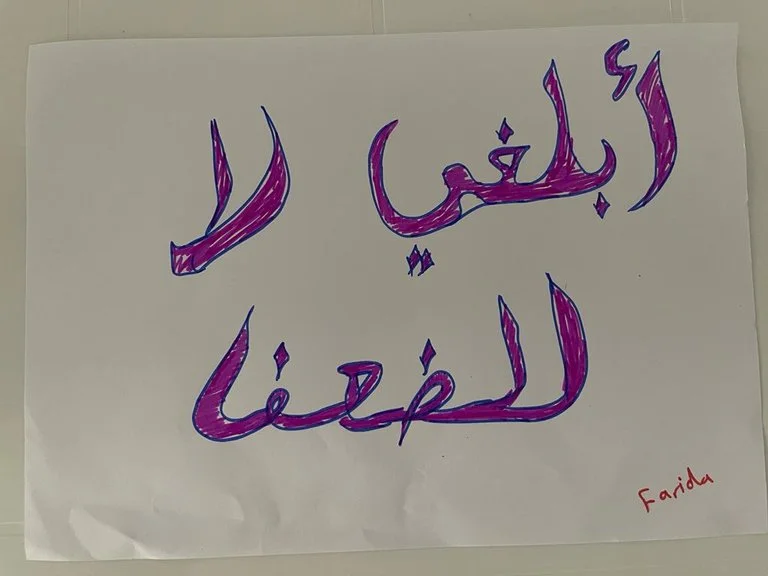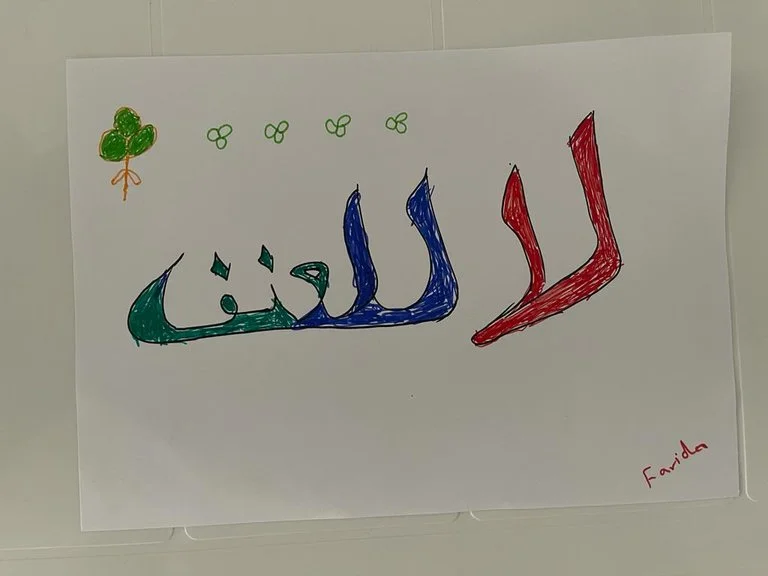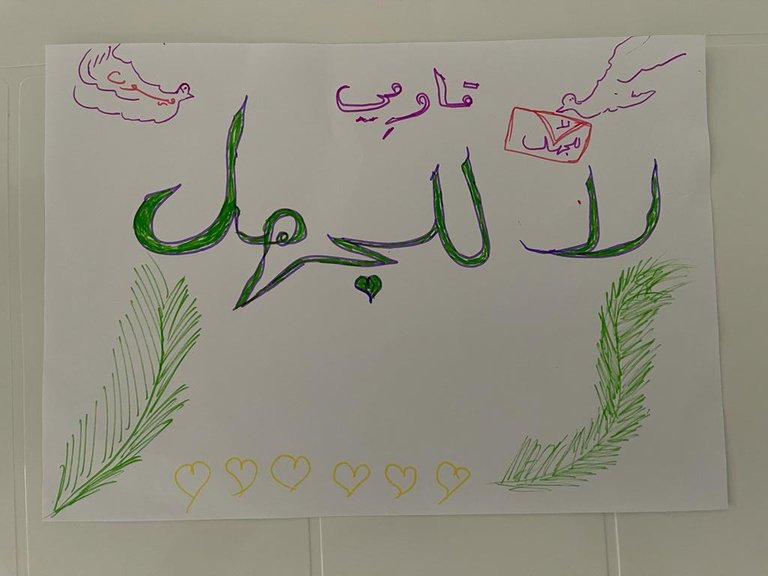On June 20, World Refugee Day
Gender-Based Violence is Ongoing
Women Refugees Are in Danger More Than Ever, Does Anyone Hear Their Cry for Help?
Say no to early marriage, no to harassment, no to beatings, no to racism, no to discrimination... Slogans the Middle East Council of Churches works all year long to transform into living reality with groups of women in awareness sessions about gender-based violence implemented by the MECC Service and Relief Department, Beirut office. Slogans saying "No to Violence", in the face of a painful reality: "No Laws"??!!!
The sad truth is there are no feasible laws, or perhaps no implementation of laws to protect women today, due to unfair policies that some countries in our region adopt. A reality we can’t escape, especially since the rate of violence against women continues to rise in the world and the Middle East. Figures and statistics confirm this tragedy!
More than one out of 4 women in the world has experienced domestic violence, and 27% of women between the ages of 15 and 49 have been victims of physical or sexual violence by their partners, according to a study detailed by The Washington Post in February 2022.
In the Middle East and North Africa, at least 35% of women have been subjected to some form of violence by their partner, according to a study published by the World Bank in October 2021. The study also showed that about 18% of girls under the age of eighteen were forced to early marriage. Not to mention the increase in violence against marginalized groups, especially the forcibly displaced women and immigrants who work in the domestic service.
Displaced women and refugees have fled wars and crises in their countries in search of safety and stability in another country that offers them a more dignified life and grants them citizen rights in a “homeland”. However, they are still in danger as violence still haunts them. The Middle East Council of Churches, through the Service and Relief Department - Diakonia, Beirut office, seeks to accompany and help them in confronting and limiting violence through awareness sessions, during which they turn their pain, and that of many others, into hope. News slogans are raised during the sessions motivating them not to surrender: Reach out! Say no to weakness, we stand together for a bright future, equality, and women's rights...
We met with some of these women in Our Lady Dispensary, in Sabtieh, Lebanon, affiliated to the Middle East Council of Churches. We listened to their stories and lived, even if just for a few minutes, the bitterness of the reality imposed on them as refugees.
No to Early Marriage: “I felt like I dug my own grave, so young”
Khawla Mohamad Al Ali talks about the importance of raising awareness on the danger of early marriage, even if out of conviction, she says: “I got married at the age of 16. Thankfully, my husband is very nice to me, and I have 4 children. I’m very happy. However, I wish I had completed my education before getting married. I felt like I dug my own grave, so young. Between my children and my husband, my time was full, I didn’t live my life to the fullest and I didn’t complete my education. My parents advised me to complete my education and didn’t force me to get married, I chose this path, but I regretted it later. I advise every girl to not get married before the age of 18 and before completing her education. I deprived myself of my rights and I regretted it later."
She added that she participated in the awareness sessions on gender-based violence and learned how to deal with her children if they encounter any problems or violence, and how to also deal with her husband, in case of any event of violence.
Khawla added on the general reality women live in today: "I noticed that in society there are a lot of harassment cases and early marriages and this is wrong. There are girls who get married to run away from their parents, and there is bullying at home, from the father towards the mother or towards his daughters. Some girls think marriage is easy and get divorced after a month or two. There should be a lot of awareness sessions for girls from the age of 10 years old and above. For example, I know a family in which the mother warned her daughter not to get married at the age of 15, but the daughter didn’t listen. This is why such awareness sessions are important to educate girls on the seriousness of the step they are taking.”
No to discrimination: “Because you are Syrian you can’t…”
Nour Al Ansari, another woman who follows the program, stressed with regret on the discrimination against refugees in Lebanon, especially women who are still afraid to report their problems due to the lack of organizations to help them in Syria and laws to protect them in Lebanon.
She told us about herself: "I got married at the age of 17 of my own free will, I was in the ninth grade when I stopped my education. I got pregnant at the age of 18. I am against the marriage of girls under the age of 18, so I wrote in the session today that I approve of marriage when it’s over the age of 18, especially that I could not get pregnant until my womb was completely developed. I have 3 children, but they are not receiving any form of education because in state schools there is discrimination between Syrian and Lebanese kids, verbal violence and beatings, and private schools are expensive for us. There is also discrimination in terms of income because we are of Syrian nationality.”
She described the session she participated in: "I am learning about so many things and I am memorizing as much information as possible. I will pass down this awareness to my 3 daughters who are 10, 9, and 3 years old, so I can protect them and keep them from harm."
She added: "As Syrians in Lebanon, there is no implementation of laws protecting women's rights and racial discrimination, especially since many people tell us: you are Syrians, you have no rights. In Syria, we’re still conservative and hardened, and there are no security agencies or homes who fight for women's rights, there are no awareness sessions nor psychological support, this is why women are so afraid to speak up.”
Nour advises every woman to speak up when she is exposed to any kind of violence: "do not remain silent and resort to institutions to protect you and cling to hope, because you are setting an example for your daughters. And always support and help those who speak up."
Together for a Brighter Future
Through the stories of Khawla, Nour, and the rest of the participants, we realized how much they benefited from and were grateful for the awareness sessions. We asked the specialist trainer, Dr. Samir Shleweet, who accompanied them, about the importance of these sessions, he said: "We educate women about the dangers of violence. The sessions allow us to talk about some important and dangerous common topics in our societies.”
“We also explain in detail the types of violence and its repercussions in order to address, in particular, the issue of gender-based violence and how to prevent it. We stress that violence is not a mental illness but rather a crime punishable by the law. Not to mention raising awareness about sexual and cultural violence like early marriage...”
He added: “the sessions included many activities, for example, we asked the women to imagine that they were in a demonstration against gender-based violence. They wrote on papers, as if they were banners, slogans expressing their pain, so that we could then exchange ideas and present appropriate solutions that lie in speaking up and not refraining from seeking refuge from concerned authorities, stressing on the confidentiality and privacy adopted by social assistance to help them take appropriate decisions on their own. We also distributed brochures with necessary instructions to reduce violence and the numbers of organizations that can offer them protection.”
Dr. Shleweet pointed out: "the rate of domestic violence has increased due to a number of factors, the latest of which was the outbreak of the Corona pandemic and the imposition of home quarantine... which means also that the rate of reported cases has also increased compared to previous years. Therefore, it is necessary to educate children about gender equality and motivate them to engage in dialogue and report any type of violence or problem they might encounter. It is also important to enact and implement laws that take into account women and ensure their protection, especially since the reality of laws is still ineffective due to fear and lack of knowledge of ways to report, and also because citizens do not believe in law enforcement.”
Awareness sessions are not limited to accompanying women only during sessions, but also allow beneficiaries who wish to meet with the social assistant in Our Lady Dispensary, Ms. Sandy Boutros, to do so in order to help them through private sessions in finding appropriate solutions to overcome their problems.
In turn, Sandy stresses on the high rate of domestic violence against women due to the living conditions and the daily pressures experienced by citizens. Therefore, she addresses every woman saying: "Every problem has a solution, so be patient and hold on to hope."
Yes, hold on to hope, rise against injustice and raise your voice ever so loud to preserve your dignity and your rights!
Believe that you are the present, the future, and an integral part of society. Change begins with you and through you!
Communication and Public Relations Department












